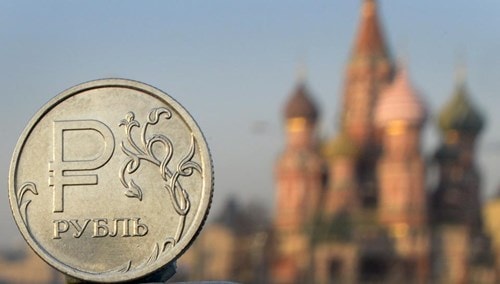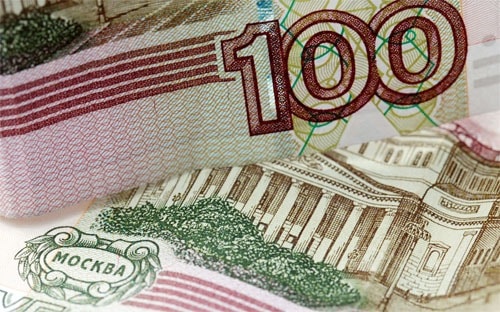Russia struggles with falling ruble
The decision to raise interest rates by 17% could not save the ruble from collapsing amid falling oil prices and Western economic sanctions against Russia over the Ukraine crisis.
 |
| Illustration |
| RELATED NEWS |
|---|
After losing 20% of its value yesterday, the ruble recovered slightly by the end of the day to 72 rubles to the dollar and nearly 91 rubles to the euro. The worsening economic outlook and looming new recession pose a serious challenge to President Vladimir Putin.
Some observers said the reason behind the ruble's precipitous fall "cannot be explained by economic factors." Russian Prime Minister Dmitry Medvedev called an emergency meeting with top Kremlin aides and key ministers. President Putin has yet to comment.
Previously, on December 15, the Russian Ruble witnessed its sharpest decline in more than 16 years, falling below 60 rubles to 1 USD for the first time in history.
According to financial news agency Bloomberg, the market is "testing" Moscow's readiness to defend its domestic currency exchange rate in the context of a sharp drop in oil prices pushing the Russian economy to the brink of recession.
 |
| The market is testing Moscow's readiness to defend its currency amid plummeting oil prices that have pushed the Russian economy to the brink of recession - Photo: Bloomberg. |
The Russian ruble has lost 22% of its value since the beginning of the month. Crude oil prices have fallen to $60 a barrel and Western sanctions imposed on Russia over the Ukraine crisis are eroding investor confidence in Russian assets.
Signs are mounting that the Russian economy is slipping into a new recession. New data showed that industrial output in November fell by the most in more than a year. “The ruble’s depreciation has been accelerated by the fall in oil prices and the lack of decisive action by the Russian central bank,” said Bernd Berg, a strategist at Societe Generale. “Russia is facing a potential crisis of currency and confidence.”
Luis Costa, a strategist at Citigroup in London, said the failure of the Russian Central Bank in yesterday's long-term local currency capital auction was one of the important factors causing the ruble to fall sharply. The Russian Central Bank canceled an auction of 700 billion rubles, equivalent to $11 billion, of three-year capital because no one participated in the bidding. "This shows that the Russian market is thirsty for USD capital. Of course, the fall in oil prices also puts pressure. This is really a perfect storm for the ruble," Costa said.
The Russian government recently predicted that the country's economy will shrink by 0.8% in 2015, marking the first recession since 2009. According to the forecast of the Russian Ministry of Economy, the amount of capital fleeing the country this year will be 125 billion USD, the highest since 2008.
This month, the Russian Central Bank spent more than $6 billion to intervene in the foreign exchange market and raised interest rates by 1 percentage point to save the exchange rate. Since the beginning of the year, Russia has spent more than $80 billion to save the exchange rate of its domestic currency, causing the country's foreign exchange reserves to fall to $416 billion, the lowest in 5 years.
The sharp decline in the ruble reflects what many economists call a crisis of confidence in the Russian economy amid a standoff between Moscow and the West. Nikolai Petrov, a professor of economics at Moscow State University, said the government had clearly failed to keep up with the negative consequences of its political decisions. What was important now was to prevent panic from spreading among the population.
According to GDVN/VnEconomy






